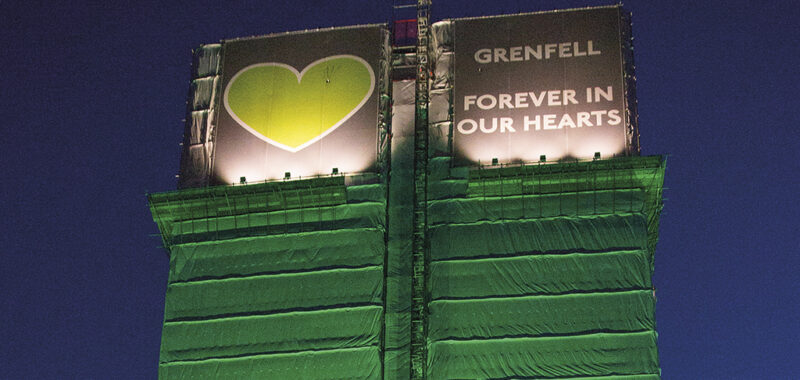Key issues remain unresolved despite government commitments post-Grenfell to enhance building safety and construction products certification, a panel of experts has said.
Guests on the latest episode of the CN First Site podcast debated moves to change regulatory oversight for building safety following the government’s response to Sir Martin Moore-Bick’s final report into the June 2017 Grenfell Tower fire.
They also discussed government plans to reform product testing and certification regulations, and introduce a licensing scheme for contractors on high-risk buildings (HRBs).
The creation of a new single regulator for construction could ensure accountability on building safety, but the necessary legislation will not materialise until later this decade, said Michael O’Connor, partner at law firm Charles Russell Speechlys.
He described a “state of flux” as the existing regulatory regime – itself reformed recently after the Building Safety Act 2022 – was still bedding in.
Reform of safety regulations is long overdue, said Professor Stuart Green of the University of Reading’s School of Construction Management and Engineering.
He argued: “We’ve neglected the conversation about the regulatory system in construction.”
Green said that safety regulations had “not kept up with new construction materials or innovative methods of building” in the past 30 years.
“All the major reports [in that period] just waffled on about disruptive innovation – that’s all we hear about. Nobody talks about a regulatory system that actually works.”
Moore-Bick’s report, published last September, laid bare the failures of testing and certification bodies, which were often found to be too closely aligned with commercial interests.
But despite his recommendations, the government has opted not to transfer product certification responsibilities to the new regulator, citing concerns over conflicts of interest.
Amanda Long, chief executive of the Code for Construction Product Information, urged the government to be “realistic about capacity [for certification and testing], but unless these bodies work to a common code of practice and share data transparently, we won’t see real change”.
Green said “the nettle still needs to be grasped” regarding which body or bodies will be responsible for certification in future, “and how we can be confident that they are indeed acting in the public good”.
The panel broadly welcomed the government’s plan to introduce a licensing regime for contractors working on HRBs. But Green said: “There’s a complete lack of detail about how it might operate”, and he questioned its selective nature.
A viable licensing system must encompass all parts of the construction ecosystem, he added. “Why pick on contractors? They don’t operate as an entirely independent entity – they’re locked into a web of mutual dependence with designers, clients and consultants, for instance.”
Long said that any licensing scheme must be more than a bureaucratic exercise. She called for a system that is “fundamentally based on looking and understanding the culture and behaviours” of organisations.
“If it’s just ticking a lot of boxes, I don’t think [a licensing system] is worth the paper it’s written on,” she added.
The government aims to use the Procurement Act to debar seven firms named in Moore-Bick’s report. But this is complicated by a five-year limitation period enshrined in the legislation, meaning the government is prevented from applying it retrospectively.
“I think it will come down to a matter of policy and how strong and strident the government wishes to be,” said O’Connor. “If it wishes to take steps to debar these firms, who’s to say that they couldn’t [amend the legislation to] extend that retrospective limitation period?”
In conclusion, Long urged the construction industry to be more proactive.
“The [construction industry] needs to take responsibility and be more transparent,” she said. “The direction of travel has been set. We need to step up.”
Long quoted architect and Grenfell Inquiry panel member Thouria Istephan, who said on the day the final report was published last September: “If you don’t feel the weight of responsibility to ensure you’re building safe buildings, then you shouldn’t be in the construction industry.”

